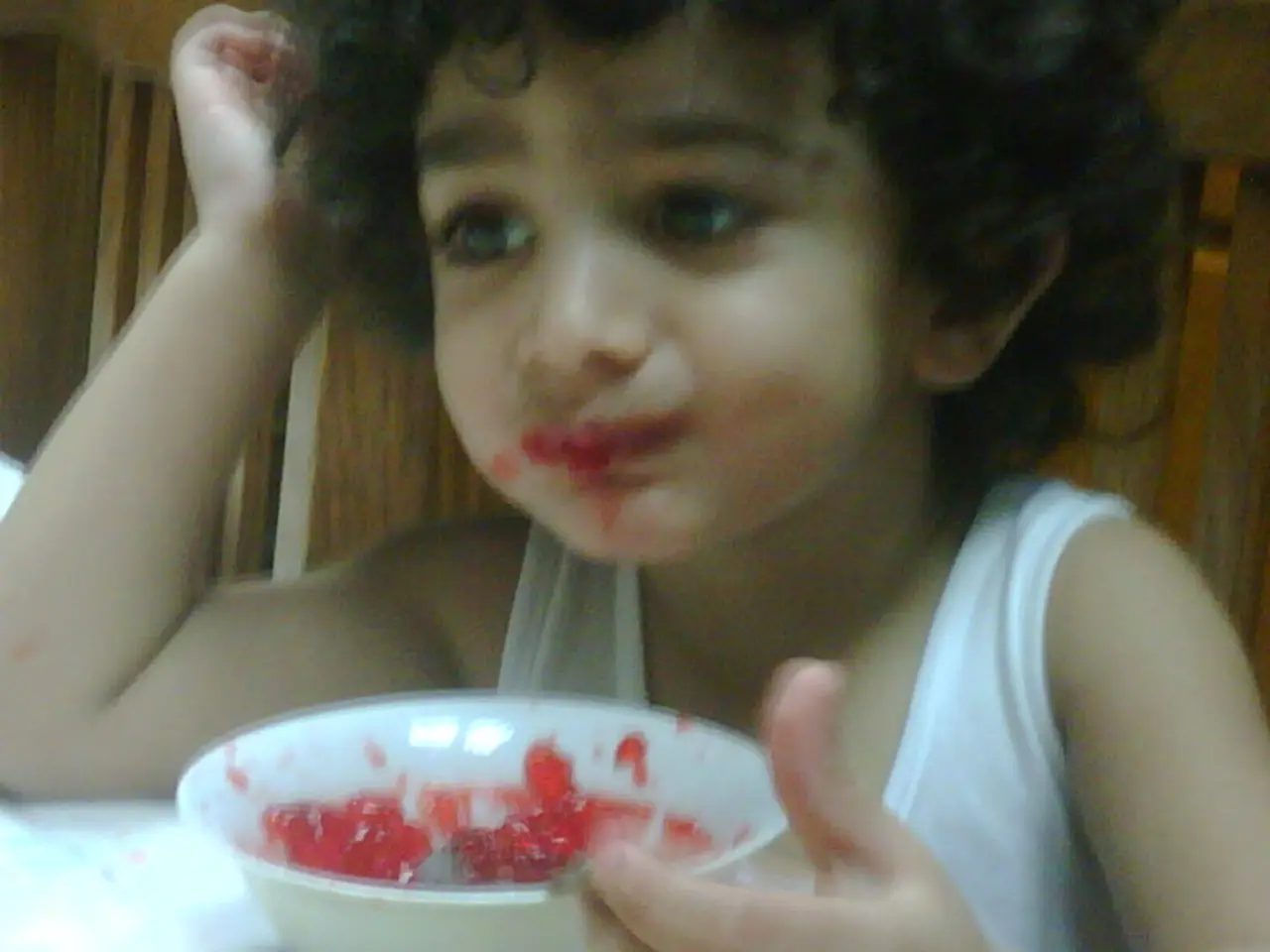Infants Capable of Developing Tonsil Infection (Strep Throat)
Strep throat, a highly contagious bacterial infection, is most common in children between the ages of 5 and 15. However, it's uncommon for children under 3 to have strep throat, although severe invasive group A Streptococcus (GAS) infections can still occur in this age group [2][3][5].
Parents of children under 3 should be aware that while strep throat itself is rare, it's crucial to recognise key symptoms and seek prompt medical attention. Symptoms may include fever, rapid onset sore throat or difficulty swallowing, red and swollen tonsils sometimes with white patches or streaks of pus, swollen lymph nodes in the front of the neck, tiny red spots (petechiae) on the roof of the mouth, headache, nausea, vomiting, stomach pain (less common in younger children), and a rash consistent with scarlet fever (rare but possible) [4][5].
If a young child has a fever, sore throat, headache, or stomachache without typical cold symptoms, strep throat is a possibility, and medical evaluation is advised. Due to the rarity and subtlety in very young children, parents should seek healthcare guidance if symptoms are concerning or persistent [2][3][5].
The single best way to reduce the risk of strep throat is by practicing good hygiene. This includes washing hands for 20 seconds with soap and warm water throughout the day. Carrying hand sanitizer can help minimize the chances of strep throat, especially when children aren't able to wash their hands [5].
Acute strep throat is spread through respiratory droplets or direct contact. Keeping tissues handy and teaching kids to wipe their noses with them can help prevent the spread of germs. Coughing or sneezing into your elbow can also help prevent the spread of germs [5].
Antibiotics can speed up the recovery process and reduce the amount of time a person is contagious. If you're concerned about your child's symptoms, especially if they have a fever, contact their pediatrician immediately [5].
It's important to note that if your child is under 3 and has been in close contact with someone who's tested positive for strep throat, doctors may test them for strep throat as well [3]. However, doctors may avoid strep tests for kids under age 3 due to the rarity of the infection and the low likelihood of complications [5].
Strep infections also tend to be milder and cause fewer dangerous complications in infants and toddlers than they do in older kids [5]. Nevertheless, early diagnosis and treatment are essential to avoid complications such as rheumatic fever or a serious kidney problem called acute glomerulonephritis, although these complications are rare [2][3][5].
In summary, while strep throat is uncommon under age 3, awareness of key symptoms and timely medical assessment remain important for early diagnosis and treatment to avoid complications [2][3][5]. By practising good hygiene and seeking medical attention when necessary, parents can help protect their children from strep throat and its potential complications.
Parents ought to be mindful that while strep throat is rare in children under 3, recognizing key symptoms and seeking prompt medical attention is crucial. Good hygiene practices like washing hands and using hand sanitizer can help reduce the risk of strep throat. Medical evaluation is advised if a young child exhibits symptoms like fever, sore throat, or stomachache without typical cold symptoms.




